Hollande's nightmare over nationality
- Published
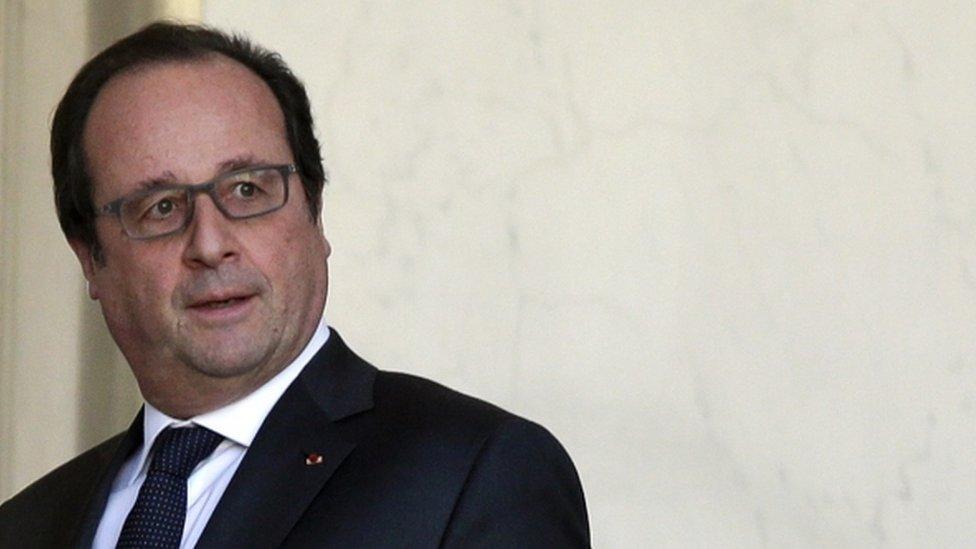
Determined to act tough after November's attacks, France's President, Francois Hollande, finds himself trapped in a damaging ideological fix over French nationality, and whether certain convicted terrorists can be made to give it up.
The row has exposed deep divisions within his ruling Socialist Party (PS), many of whose members believe the president has veered dangerously to the right in his reaction to the Paris atrocities.
With just a year till campaigning starts for the 2017 presidential election, it shows the uphill task facing Mr Hollande as he tries to forge a united leftwing bloc capable of returning him to the Elysee.
The problem might appear abstruse - and with little actual impact in the battle against jihadist extremists.
But in France - and especially among the French left - symbols count.
And the right to carry the title Citizen of a French Republic is a matter over which people have fought and died.
The problem arose from a promise by Mr Hollande - made in his speech to the united houses of parliament after the attacks - to strip of their French nationality convicted terrorists who are "bi-nationals",, external in other words who have a second nationality.
Significantly, he said this should apply to bi-nationals "who are born French" - and not just to people who have acquired a second French nationality through residence or marriage. (In some circumstances, this category can already be stripped of nationality).
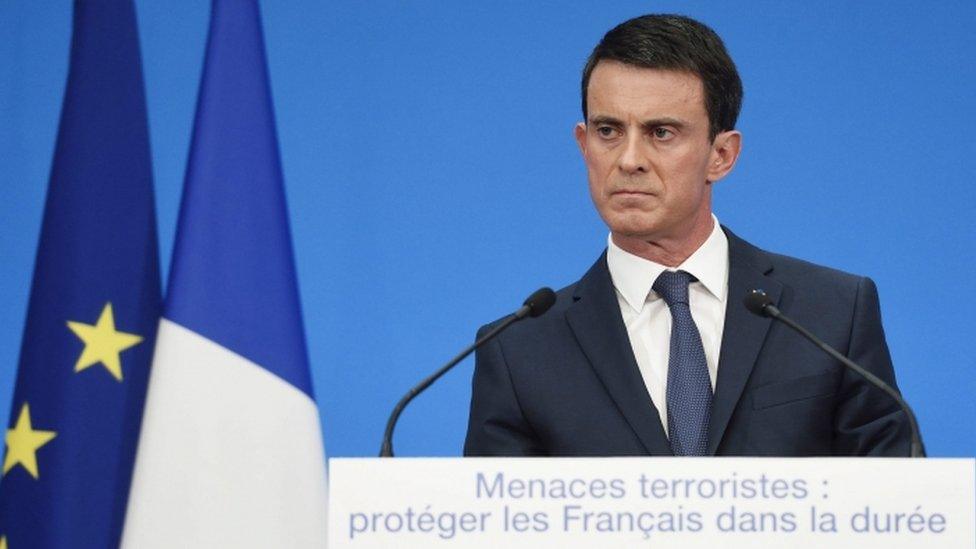
Prime Minister Manuel Valls favours a tough line
The president - backed by Prime Minister Manuel Valls - decided it was the kind of strong response the people of France expected.
Polls putting support for the measure, external at 80%-85% suggest he is right.
At the time he announced it - with the shock of the 130 dead still reverberating - little was made of the idea.
Intensifying opposition
But today the opposing voices are rising in crescendo, and it is clear many on the left regard the president's proposal as a grotesque betrayal.
For critics, the idea of stripping "French-born bi-nationals" of their French citizenship is fundamentally wrong because it creates two classes of French citizen.
It means if you are a French jihadist with only one nationality, then your French citizenship is safe. But if you are a French jihadist who has two nationalities (say French and Algerian), then your French citizenship can be taken away.
The measure removes the universal nature of French citizenship, and thus discriminates against the estimated three million people (mainly of North African origin) who have two passports. So goes the argument.
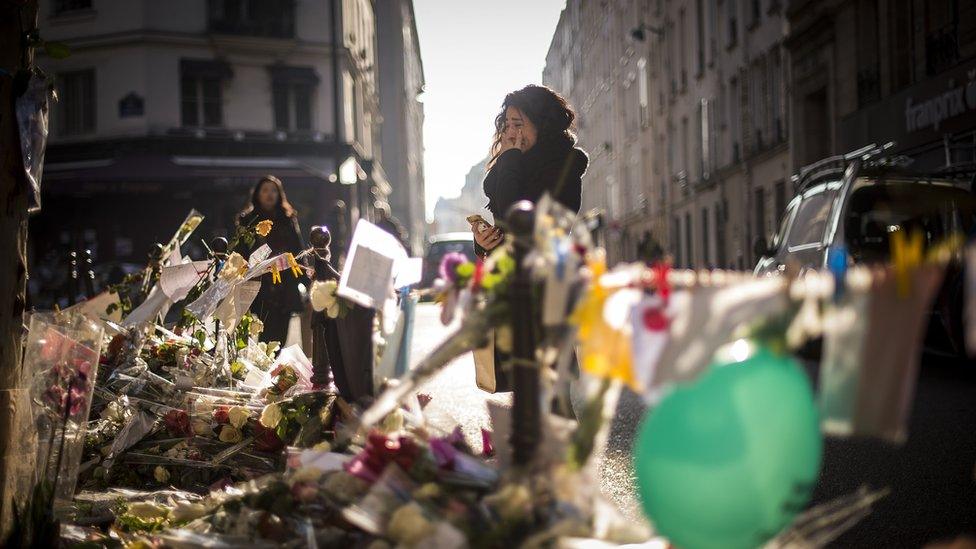
The measures were a response to the 13 November attacks in Paris
Former Socialist minister Benoit Hamon said: "This decision will create a schism among people of the left, but equally in the nation as a whole.
"I fully recognise that there are political issues at stake here.
"But ends cannot justify the means.
"It is a question of conscience and of values."
Meanwhile, ever-provocative Left Front leader Jean-Luc Melenchon said his feeling was "less one of indignation or disgust, more one of total nausea".
"Curse them for this unprecedented ignominy," he added.
The nationality issue is fast becoming one of those abstract points of principle on which the French left loves to tear itself apart.
On one side are those with the president, who say it would be mad to ignore the anger of the voters.
They point out many other EU countries - including the UK - have given themselves the right to remove nationality from terrorists.
On the other, are those who accuse Mr Hollande of running shamelessly after the right, junking long-cherished values in the process.
It does not help the president that the no-French-nationality-for-terrorists cause has long been the preserve of his enemies.
The far-right Front National even thanked Mr Hollande for adopting a measure that is part of its own manifesto.
As for Nicolas Sarkozy's Republicans, they point out that when Mr Sarkozy pushed through a similar measure in 2010 to punish bi-nationals who attacked police officers, he was accused of rabble-rousing xenophobia by no lesser figures than Mr Hollande and Mr Valls themselves.
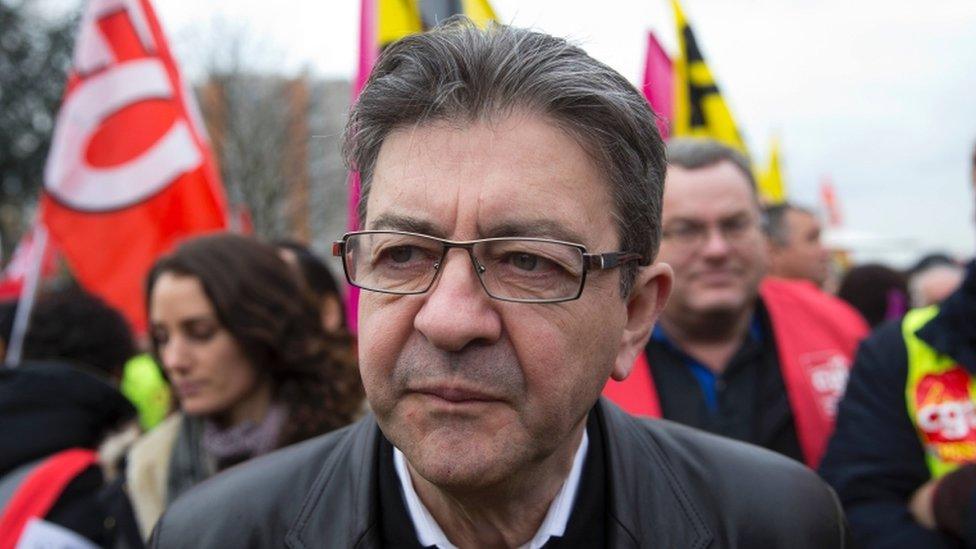
Jean-Luc Melenchon has railed against President Hollande's plans
Realising they are in an embarrassing mess over the issue, some Socialists have proposed a way out.
In order to avoid creating a two-tier system of citizenship (with bi-nationals different from mono-nationals), why not make it possible for all citizens to have their nationality removed if convicted of acts against the state?
Right to nationality
The problem there is that they run into another point of principle.
If you strip a mono-national of his nationality, then he or she become nation-less. And that would be in breach of the UN Declaration on Human Rights, external, which states that every individual has a "right to a nationality".

UN Declaration on Human Rights:
Adopted on 10 December 1948, following a vote in which 48 nations voted in favour, none against, and eight abstained (the Soviet Union, the Soviet Republics of Ukraine and Belarus, Yugoslavia, Poland, South Africa, Czechoslovakia, and Saudi Arabia)
Contains 30 Articles designed to act as "a common standard of achievement for all peoples and all nations"
Article 15:
(1) Everyone has the right to a nationality
(2) No-one shall be arbitrarily deprived of his nationality nor denied the right to change his nationality

The absurd problem could easily arise of a convicted terrorist being stripped of his nationality but having to remain resident in France - because no other country would ever accept him.
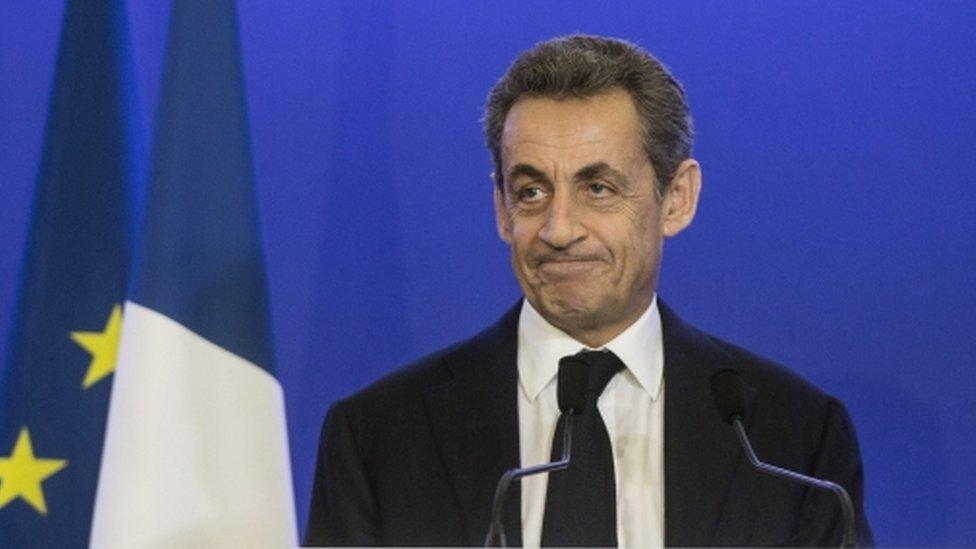
Former French President Nicolas Sarkozy pushed through similar measures in 2010
To secure his proposal, President Hollande wants it in a package of constitutional reforms to be voted on by the joint houses of parliament some time in the next two months.
But to pass, it will need a three-fifths majority of the 925 deputies and senators.
If a large bloc of the left votes against, he might have to rely on the support of Mr Sarkozy's opposition.
That would be highly embarrassing, and do little for the president's standing both in his party and in the left as a whole.
But then dropping the proposal would be a sign of weakness at a time when Mr Hollande feels it is essential to stand firm.
He really is in a bit of a fix.
- Published23 December 2015
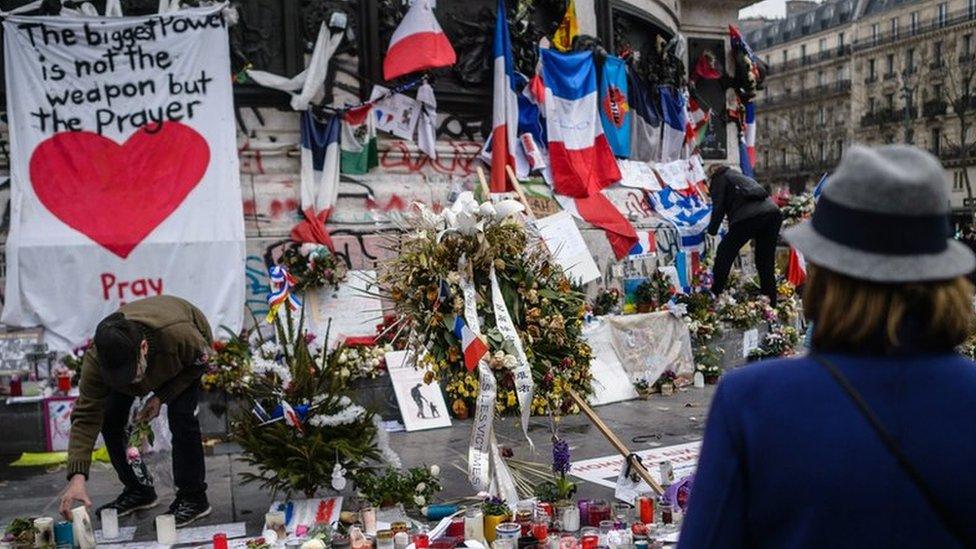
- Published19 November 2015